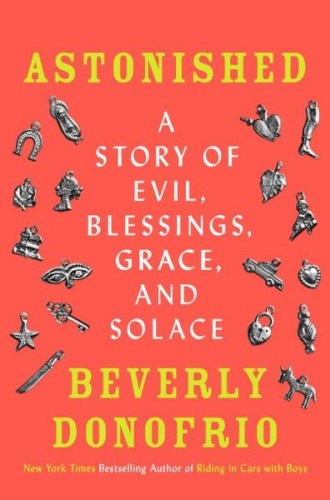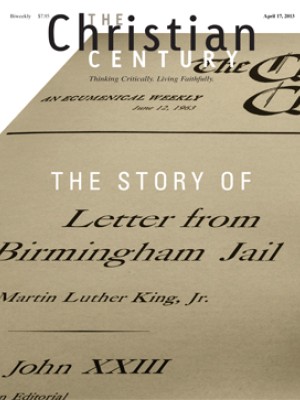Astonished, by Beverly Donofrio
Beverly Donofrio had just been “looking for a monastery to join, for Christ’s sake.” She had closed her laptop, having bookmarked religious communities she might write to, then had fallen into a deep sleep. During the night she was raped at knife point in her home in Mexico.
Why me?
Even though I do know the important question is not why this happened to me but what I’m going to do now; and even though I was fifty-five and the attacker was a serial rapist in a small town, raping gringo women between fifty and sixty; and even though I, along with the entire town, felt like evil had come for a visit and it was not personal . . . I was absolutely shocked he chose me.
Read our latest issue or browse back issues.
Why now? Beverly Donofrio’s life had come to a fullness of love and success. Her first memoir, Riding in Cars with Boys, had been translated into 16 languages and made into a movie starring Drew Barrymore and directed by Penny Marshall. Her second memoir, Looking for Mary, had begun as a documentary on NPR and was chosen as a Discover book by Barnes & Noble. She had recently become a grandmother, which drew her into a depth of love she’d never imagined possible.
She didn’t have an easy start, and she wasn’t always religious. After becoming pregnant as a teenager, marrying a junkie, divorcing at 19, getting herself into college and graduating at 27, living in the underbelly of New York City and raising her son as a single mother, Donofrio found religious faith. It all started with yard sales. For no good reason, she began collecting religious kitsch relating to Mary, and then she fell in love with God.
Astonished is a memoir of prayer and discernment. After the rape, Donofrio followed through with her plan of actively seeking a monastic vocation. She visited five communities in six months. She went back to Mexico and endured the ordeal of the rape trial, facing her rapist in court. Then she spent the next two years as a vowed lay religious woman at a hermitage with a guest ministry in Colorado. She learned to begin integrating her personal horror into prayer, meditation, silence and service. She eventually came to realize that her faith is unshakable.
How many books about prayer and trauma are funny? Donofrio is quirky, street-smart, ironic and witty, and she also reveals embarrassing and petty failures of character. “If transformation was a job,” she says, “I’d be fired.” I laughed throughout the book despite the tragic occasion of its premise. In one scene, she’s trapped in a cabin during a blizzard reading a book of doctrine, and it infuriates her: she is hungering to get back to reading a biography of dancer Rudolf Nureyev. She cries, has panic attacks, endures nightmares, makes friends and watches both the cruelty and beauty of nature around her. Her love of God deepens.
Donofrio is not a theologian. She doesn’t use the word theodicy. Her spiritual needs are practical, and she offers a survivor’s point of view: Why me? Why now? How can I learn from this? Can this evil in my life somehow make me a better person? Eventually she realizes, “If I keep thinking about it, focusing on evil, it’ll take up house, and be impossible to get rid of.” She writes that being a Christian means “transforming pain in order not to transmit it.”
When the rapist was in her bed, Donofrio began to pray the Hail Mary in Spanish. “What are you doing?” he demanded. “I’m praying,” she said. “For you.” Then, instead of staying and torturing her as he had his other victims, he left. After the trial she wrote, “I pray for the rapist a few times but it doesn’t feel sincere. I plan to work on it.”







